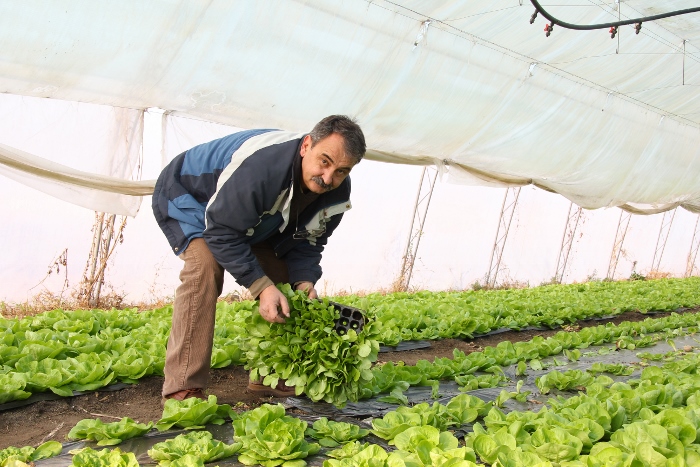The adoption of innovations as well as support for, and the organization of, social actors are some of the actions that can be implemented to make farming a more secure and profitable economic activity.

San Jose, 25 November 2015 (IICA). One of the tasks facing agriculture in Latin America and the Caribbean (LAC) is the need to ensure that risk management is an integral part of agricultural planning, in order to correct, anticipate, and prevent possible economic and environmental impacts and make the sector more resilient.
This was emphasized by experts of the Inter-American Institute for Cooperation on Agriculture (IICA), the United Nations Food and Agriculture Organization (FAO), and the Economic Commission for Latin America and the Caribbean (ECLAC) in a new newsletter published in mid-November.
According to the experts, the implementation of risk management strategies and mechanisms to address current risks, assist in recovery from disasters and gain experience for coping with similar challenges in the future can reduce losses and the negative impact on the agricultural sector.
Most efforts of this kind currently consist of actions undertaken in response to natural disasters, followed by reconstruction, but the experts believe that a new approach is required.
“Actions aimed at reducing and preventing risks are less expensive than the losses to which the sector is exposed by unmitigated disasters, and are much more effective. We need to sensitize people to the benefits and options offered by integrated risk management. The adoption of this vision is one of the biggest challenges facing the region,” commented the coordinator of IICA’s Center for Strategic Analysis for Agriculture (CAESPA), Miguel García.
According to the document, family agriculture accounts for 40% of LAC’s total production, with some 60 million people working on 17 million small farms.
“Family agriculture is of great economic importance to LAC. It is one of the sectors in the region with the least favorable social, economic and productive conditions, making it more vulnerable to losses,” explained Joaquin Arias, an IICA specialist in policies and sectoral analysis.
He believes that adopting technological innovations and promoting the support of the State, commercial and development banks, insurers and reinsurers, and the private sector are essential for the development of comprehensive policies on the topic.
Risk transfer (e.g., harvest and disaster insurance) is only efficient and viable when they are part of a comprehensive management strategy that includes measures aimed at disaster preparedness, anticipation, adaptation, and protection.
“The use of risk transfer instruments alone equates to poor risk management, with inefficient interventions that make them economically unviable for the private sector and unsustainable for governments,” Arias explained.
The recommendations made in the document are intended to contribute to the establishment of effective and comprehensive risk management systems that include, among other things, the purchase of cover to reduce losses, risk transfer through insurance or other mechanisms, as well as recovery and adaptation measures.
Some of the mechanisms proposed by risk management entities are the promotion of climate-smart agriculture, integrated pest management, the use of agrobiodiversity and technology, the coexistence of different production systems, income diversification, and early warning systems.
The specialists also recommend conducting climate risk zoning studies to facilitate agricultural planning; implementing mixed production systems that assist in adaptation to climate change; and providing tools to enable farmers to keep financial records and maintain an adequate level of liquidity, thereby ensuring that they do not overextend themselves.
More information:
miguel.garcía@iica.int – joaquín.arias@iica.int
Technical bulletin (Spanish only)











